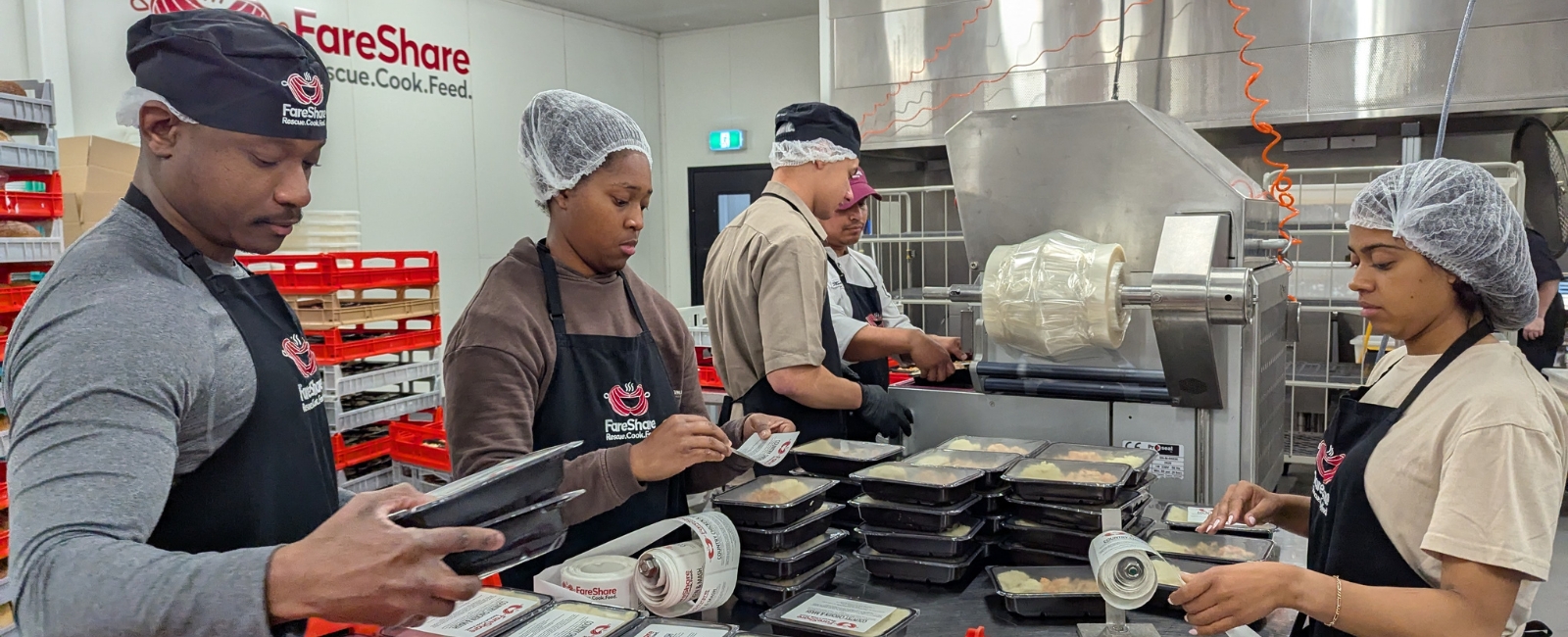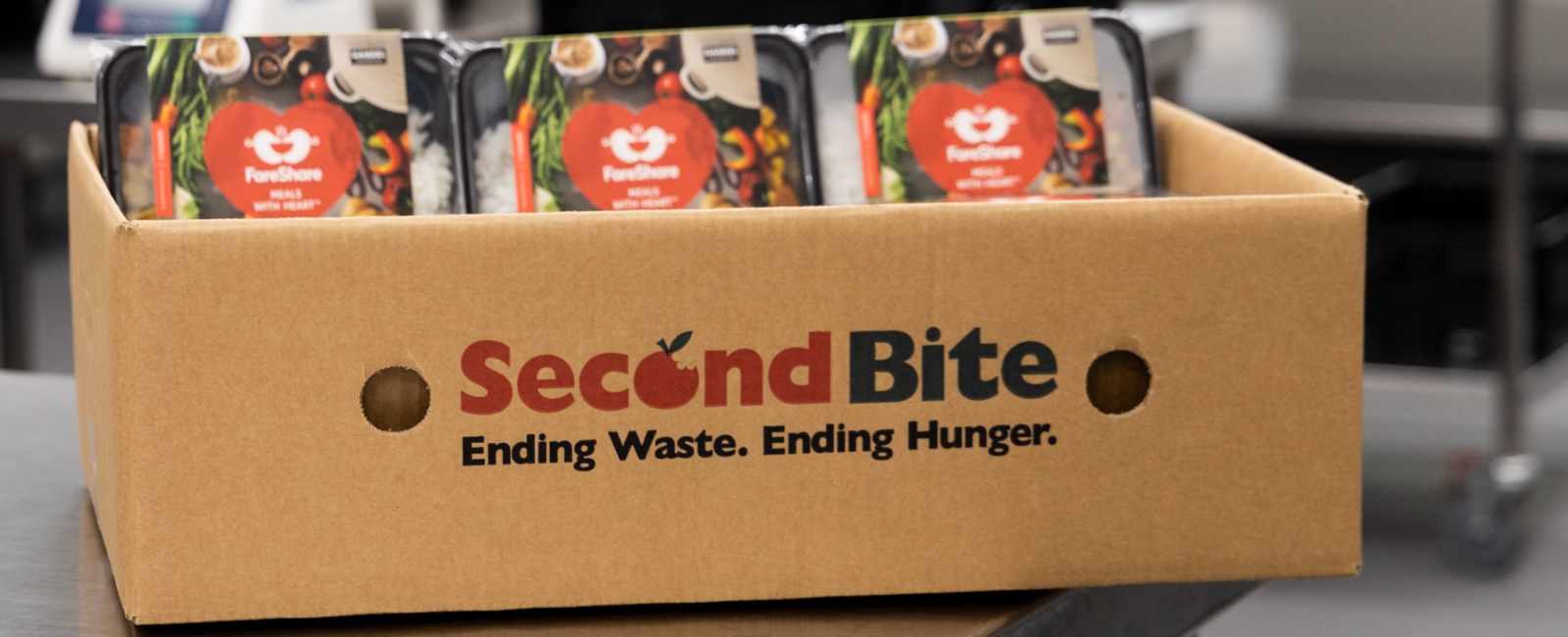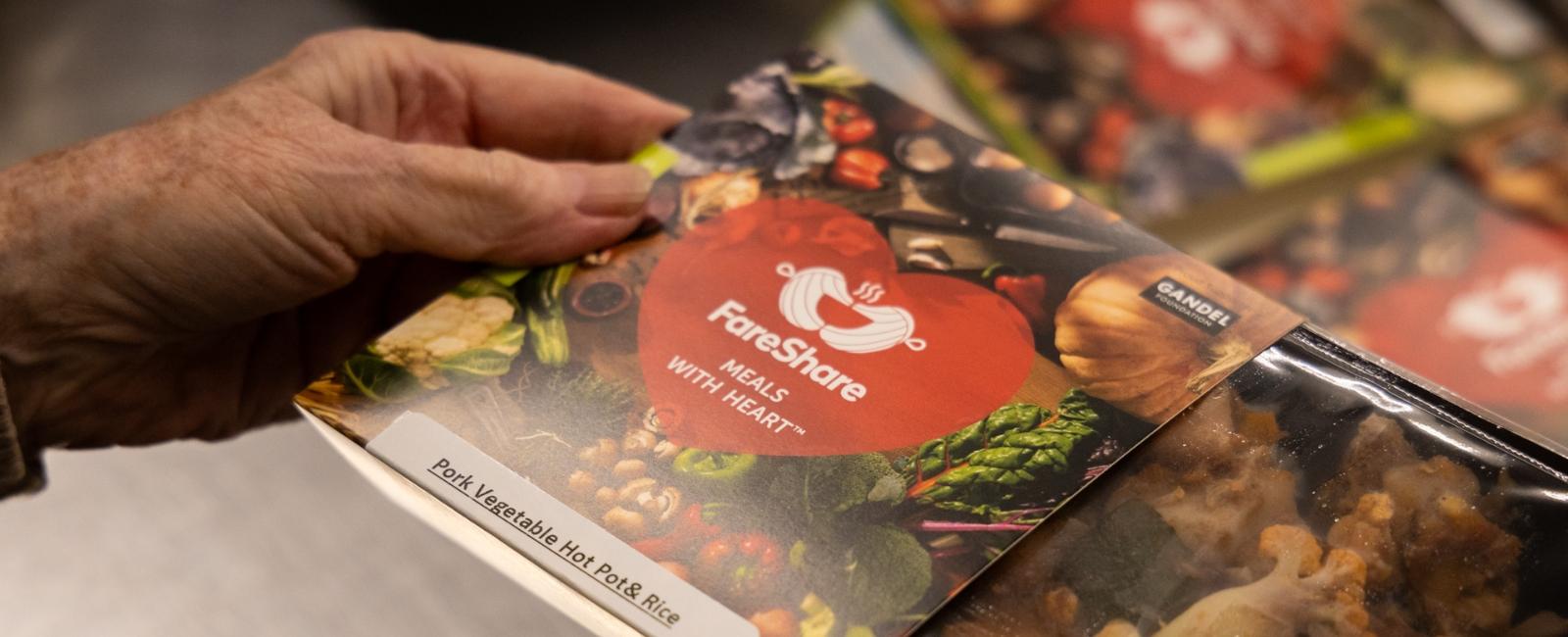
It’s not every day you walk into a kitchen where the menu is decided by whatever turns up in the fridge. But at FareShare’s kitchen headquarters, that’s exactly how the day starts, with a chef opening the cool room door, scanning the donated ingredients, and planning thousands of nutritious meals to feed those in need.
FareShare operates one of Australia’s largest charity kitchens in Brisbane and Melbourne. Their goal is simple: to cook free, nutritious meals for people doing it tough.
What’s less simple is the scale at which they do it. Last year, the Brisbane kitchen alone prepared more than 1.375 million meals, and in 2025, they’re aiming for two million.
The food is real, hearty and homemade, meals like casseroles, pastas, curries and stews, all packed with fresh vegetables and protein. Every dish is prepared with care by professional chefs and a team of volunteers who give their time and heart to keep the kitchen running.
Jackie Maxwell, Head of Corporate Partnerships at FareShare, says it’s the personal touch that makes FareShare meals different.
“A home-cooked meal shows someone cares,” she says. “It brings dignity to the person receiving it, and in many cases, it’s the only nutritious food they’ll have all day.”

Meals are distributed through frontline services including soup kitchens, homeless shelters, women’s refuges, First Nations organisations, refugee support centres and disaster response teams. They reach people from all walks of life who are experiencing crisis, disconnection or hardship.
While the food comes from rescued surplus ingredients, collected from supermarkets, wholesalers, farmers and food manufacturers, there’s nothing second-rate about what’s plated up. Every meal is created to be nourishing, comforting and above all, made with respect.
In 2024, FareShare merged with national food rescue organisation SecondBite, allowing the kitchen network to expand its reach and access to fresh produce. Trucks criss-cross the country collecting everything from carrots and cauliflower to eggs and dairy, which is then transformed into healthy, ready-to-eat meals.
FareShare’s Brisbane kitchen operates three shifts a day, morning, afternoon and evening, to keep up with demand. Over 480 volunteers in Brisbane alone make this possible. They chop vegetables, portion meals, pack boxes and help keep the production line moving.
The reasons people volunteer are as varied as the meals themselves. Jackie describes a diverse team, from 16-year-olds to 86-year-olds, all finding purpose through the work.
“We have one volunteer named Bill who’s 86. He turns up every weekday for the morning shift. When I asked what he’d do if he wasn’t here, he said, ‘My wife would be yelling at me.’ But the truth is, he loves it. It gives him a reason to get up each day, and he’s part of something bigger.”
That sense of connection extends beyond the kitchen. One group of women met through FareShare and now meet for lunch after every shift. It’s these smaller stories that reflect the broader impact, bringing people together through purpose.
FareShare’s partnership with Brisbane Airport came at the right time. After the recent floods and cyclone in Queensland, FareShare had emptied their freezer stores to respond to community need, but with the disaster affecting food supply chains, there was little surplus stock left to cook with.
The grant from Brisbane Airport’s Community Giving Fund allowed FareShare to purchase essential staples like pasta, flour and milk, and cook an additional 3,000 meals when they were needed most.
“Funding from Brisbane Airport meant we didn’t have to turn people away,” Jackie says. “It bridged the gap at a critical moment.”

Looking ahead, FareShare is also exploring innovation in how meals are produced and stored. They’re developing freeze-dried meals that can be used for longer-term storage in disaster relief situations, particularly in remote or flood-affected communities where access to fresh food is limited.
No matter how the meals evolve, the mission stays the same: to ensure that everyone, regardless of their circumstance, has access to a good, healthy meal.
“There’s a basic human dignity in being able to eat well,” Jackie says. “We’re here to make that possible.”

